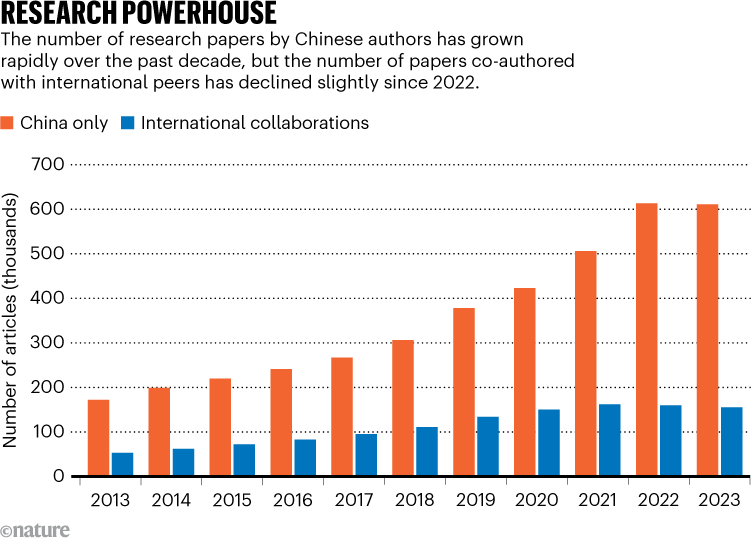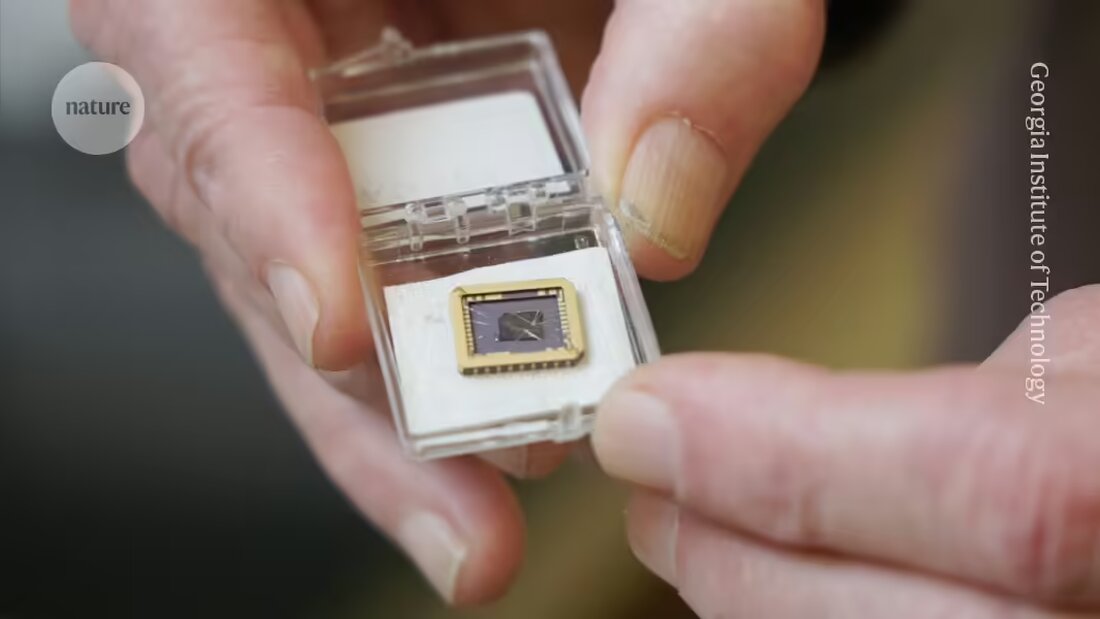China's scientific cooperation with other countries has fallen since the pandemic, driven by declining partnerships with the United States, an analysis shows.
Scientists warn noted that political tensions between China and the United States, combined with the pandemic, have affected research collaboration between the two countries. However, evidence of this type of decline takes time to accumulate in research databases.
The latest evidence comes from an analysis conducted by Springer's China team. (Nature's newsroomis editorially independent of its publisher, Springer Nature.) The authors used InCites, a tool from London-based publishing analytics service Clarivate, to analyze internationally co-authored articles published between 2013 and 2023. InCites relies on papers indexed in the scientific citation database Web of Science.
They found that the total number of papers co-authored by researchers from China and their international colleagues fell in 2022 for the first time since 2013 (see 'Research site').

The proportion of research papers with Chinese and international co-authors has been declining for a long time. At its peak in 2018, 26.6% - about 110,000 articles - of China's output in the InCites database was written with international colleagues. By 2023, the share of the country's articles with international counterparts had fallen by 7.2%, although China's total number of articles nearly doubled to 759,000 over the same period.
The decline in internationally co-authored papers is largely due to China's declining share of papers co-published with U.S. researchers, which fell 6.4% between its peak in 2017 and 2023 - the largest decline of any country included in the analysis. The results were presented at the Zhongguancun Forum in Beijing on April 25.
The decline in US-China cooperation reflects results one 2022 forNatureanalysis carried out which found that the number of researchers with dual US and China affiliations in research articles in Elsevier's Scopus database fell by more than 20% between 2019 and 2021.
Although the latest analysis shows the share of U.S.-China items has been slowly declining over the past six years, the pandemic has reinforced the downward trend, says Marina Zhang, an innovation researcher who focuses on China at the University of Technology Sydney in Australia.

 Suche
Suche
 Mein Konto
Mein Konto

